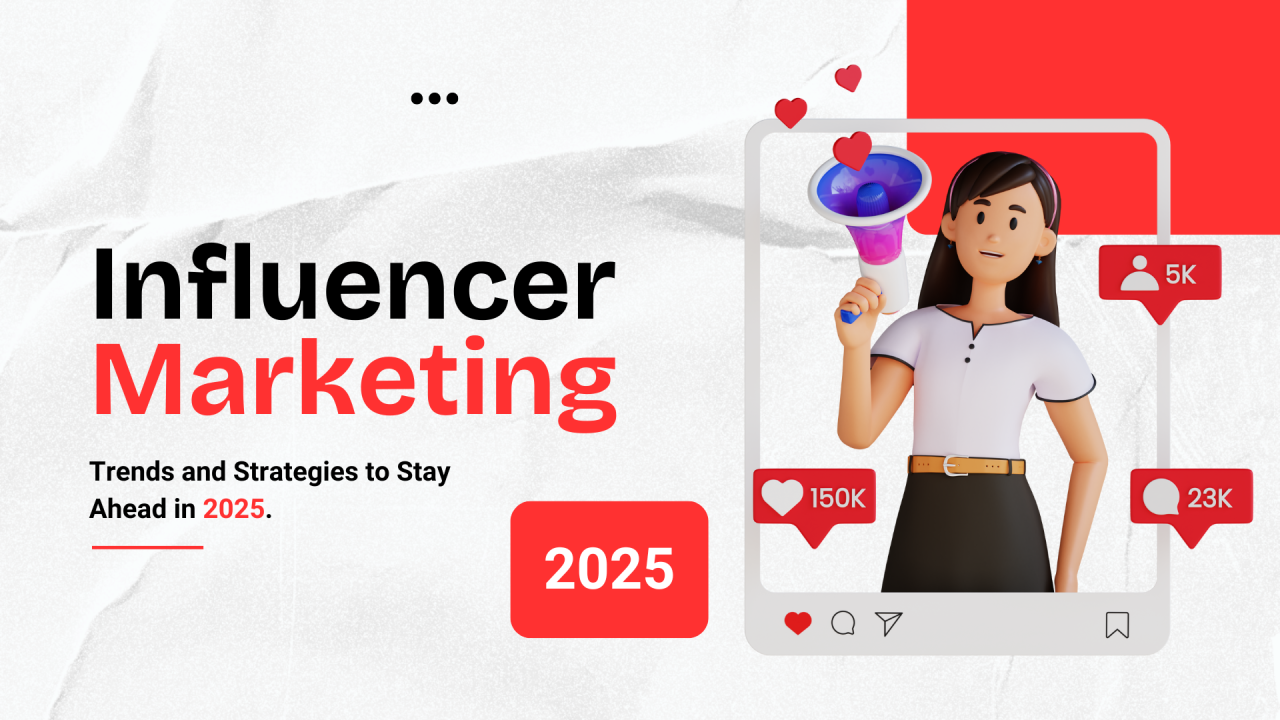In 2025, influencer marketing is no longer just an option—it’s a necessity for brands that want to stay relevant in an increasingly digital world. As the founder of an influencer marketing agency, I’ve seen firsthand how the landscape has evolved, and I want to share key trends and actionable insights that brands should embrace to stay ahead.
1. The Rise of AI-Driven Influencer Marketing
AI is revolutionizing how brands identify, vet, and collaborate with influencers. Advanced algorithms can now analyze engagement authenticity, predict campaign performance, and even generate influencer content. Brands leveraging AI tools will be able to optimize their ROI and detect fraudulent activity more effectively than ever before.
2. Authenticity Over Follower Count
Gone are the days when brands prioritized influencers solely based on their follower count. In 2025, micro and nano-influencers with highly engaged communities will drive more meaningful results. Consumers trust real, relatable voices over polished celebrity endorsements, making authenticity the key currency in influencer marketing.
3. The Emergence of Long-Term Brand-Influencer Partnerships
One-off collaborations are becoming a thing of the past. Brands now realize that sustained, long-term partnerships with influencers create deeper audience connections and stronger brand affinity. Building ambassador programs with influencers who genuinely love your brand will yield better results than one-time sponsored posts.
4. Short-Form & Interactive Content Domination
With platforms like TikTok, Instagram Reels, and YouTube Shorts leading the charge, short-form video content is dominating influencer marketing. But beyond just video, interactive content—polls, live streams, Q&A sessions—drives higher engagement and builds stronger brand-consumer relationships.

5. The Rise of Social Commerce & Direct Sales
Influencers are no longer just promoting products; they’re selling them directly. Features like TikTok Shop, Instagram Checkout, and affiliate-linked product drops are transforming influencers into digital storefronts. Brands that integrate seamless shopping experiences within influencer content will see a direct impact on their sales.
6. Data-Driven Decision-Making
With increasing scrutiny on marketing budgets, brands are demanding more measurable ROI from influencer campaigns. Advanced analytics tools now allow businesses to track conversions, engagement rates, and customer acquisition costs more accurately than ever. If your influencer marketing strategy isn’t data-driven, you’re leaving money on the table.
Final Thoughts
Influencer marketing in 2025 is more strategic, data-driven, and authentic than ever before. Brands that adapt to these evolving trends—leveraging AI, prioritizing authenticity, embracing long-term partnerships, and integrating social commerce—will stay ahead of the competition.


